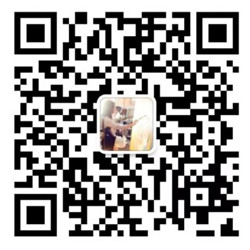In today’s fast-paced and dynamic business environment, the concept of remote work has gained significant traction. With the advancements in technology and the increasing demand for flexibility, more and more companies are embracing the idea of managing a remote workforce. However, managing a remote workforce comes with its own set of challenges, such as ensuring productivity, monitoring employee activities, and maintaining effective communication. This is where GPS trackers come into play, revolutionizing the way companies manage their remote workforce.
GPS trackers have become an indispensable tool for businesses looking to enhance their remote workforce management. These innovative devices offer a wide range of features and functionalities that enable employers to effectively monitor and manage their remote employees. From tracking the location of employees to monitoring their activities and ensuring compliance with company policies, GPS trackers have proven to be a game-changer in the realm of remote workforce management.
One of the key benefits of GPS trackers in remote workforce management is the ability to track the location of employees in real-time. This feature is particularly useful for companies with field-based employees, such as sales representatives, delivery drivers, and service technicians. By using GPS trackers, employers can ensure that their remote employees are where they are supposed to be, thus enhancing accountability and productivity.
Moreover, GPS trackers provide valuable insights into employee activities, allowing employers to monitor their performance and identify areas for improvement. With the help of GPS tracking data, employers can gain a comprehensive understanding of how their remote employees spend their time, which tasks they prioritize, and how efficiently they complete their assignments. This level of visibility enables employers to make informed decisions and optimize their remote workforce management strategies.
In addition to tracking employee location and activities, GPS trackers also play a crucial role in ensuring compliance with company policies and regulations. For instance, companies operating in industries with strict safety regulations, such as construction or transportation, can use GPS trackers to monitor employee adherence to safety protocols and driving regulations. By doing so, employers can mitigate risks, ensure compliance, and maintain a safe working environment for their remote workforce.
Furthermore, GPS trackers facilitate effective communication and coordination among remote employees and their managers. By leveraging GPS tracking data, employers can streamline communication, assign tasks based on employee location, and optimize the allocation of resources. This not only enhances operational efficiency but also fosters a sense of connectivity and collaboration within the remote workforce.
Another significant advantage of GPS trackers in remote workforce management is the ability to analyze historical data and identify patterns and trends. By analyzing GPS tracking data over time, employers can gain valuable insights into employee behavior, performance trends, and operational patterns. This data-driven approach empowers employers to make data-driven decisions, implement targeted interventions, and continuously improve their remote workforce management strategies.
It is important to note that the implementation of GPS trackers in remote workforce management should be accompanied by clear communication and transparent policies. Employees should be informed about the use of GPS trackers, the purpose of tracking, and the measures in place to protect their privacy and data security. By fostering open communication and addressing employee concerns, employers can ensure that the use of GPS trackers is perceived as a tool for empowerment rather than surveillance.
GPS trackers have emerged as a powerful tool for enhancing remote workforce management. By providing real-time location tracking, activity monitoring, compliance enforcement, and data-driven insights, GPS trackers enable employers to effectively manage their remote workforce, improve productivity, and ensure operational efficiency. As the trend of remote work continues to evolve, the role of GPS trackers in remote workforce management is set to become even more prominent, empowering businesses to thrive in the era of remote work.
Post time: Apr-30-2025










